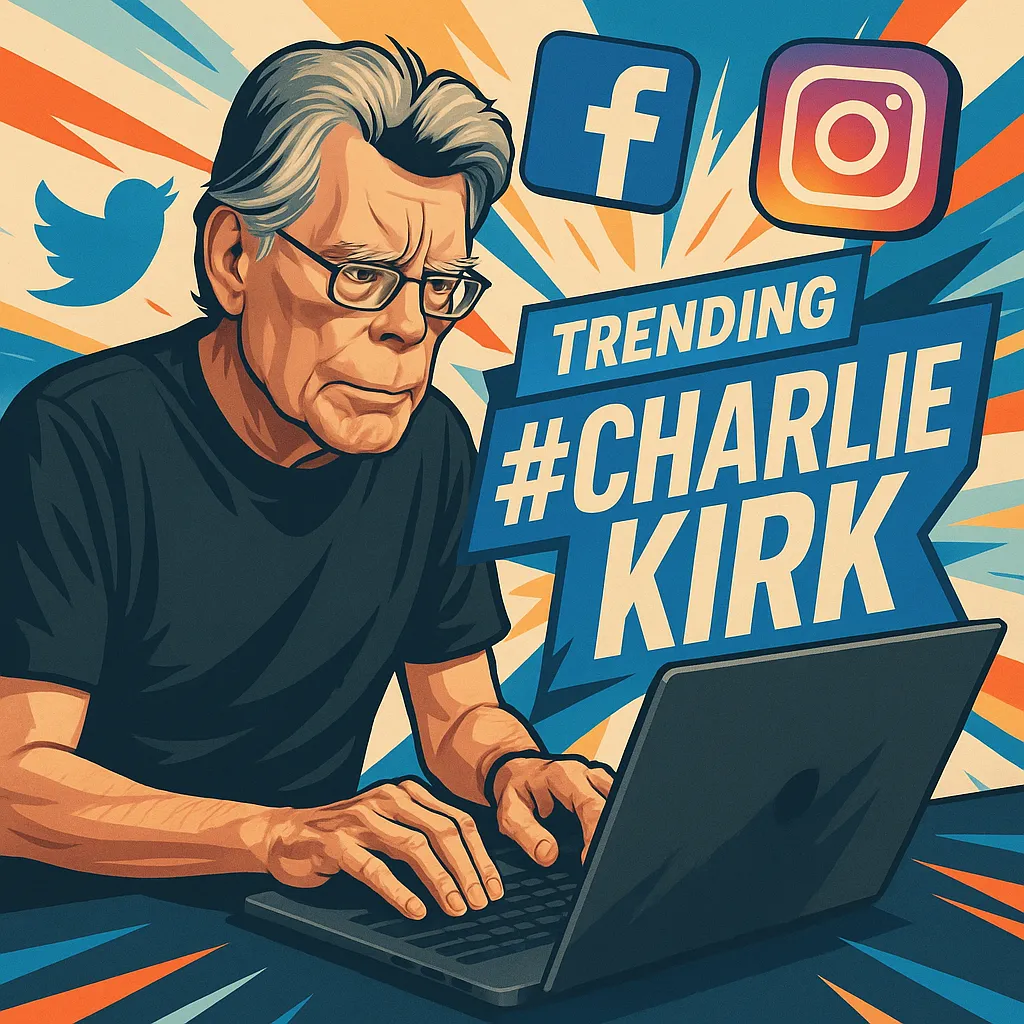Stephen King Issues Rare Apology After False Claim About Charlie Kirk

Lead: Bestselling author Stephen King retracted a since-deleted social media post in which he wrongly asserted that conservative activist Charlie Kirk “advocated stoning gays to death,” issuing a public apology on September 12.
Nut Graf: King’s correction came amid intense backlash from political figures and online users following the assassination of Kirk at Utah Valley University on September 10, underscoring the risks of unverified commentary on fast-moving social platforms.
King’s Original Claim and Swift Retraction
- On Friday, King responded to a Fox News segment defending Kirk, tweeting, “He advocated stoning gays to death. Just sayin’,” then deleted the post after users provided contrary evidence.
- Hours later, the 77-year-old horror novelist admitted his mistake: “I apologize for saying Charlie Kirk advocated stoning gays. What he actually demonstrated was how some people cherry-pick Biblical passages.”
Backlash from Political Circles
- Texas Senator Ted Cruz blasted King as “a horrible, evil, twisted liar,” prompting the author to quip, “The horrible, evil, twisted liar apologizes. This is what I get for reading something on Twitter w/o fact-checking. Won’t happen again.”
- Other commentators accused King of insensitivity for commenting on Kirk’s memory so soon after the shooting.
Context of Charlie Kirk’s Death
Charlie Kirk, 31, co-founder of Turning Point USA, was shot and killed during his “American Comeback Tour” at Utah Valley University on September 10. Authorities arrested 22-year-old Tyler Robinson, who allegedly confessed to family members before his apprehension.
- Utah Governor Spencer Cox called the killing “an attack on all Americans and free speech,” likening the violence to other political assassinations.
- Kirk’s advocacy for conservative student engagement made him a frequent target of both praise and criticism.
Implications for Public Discourse
King’s error highlights the challenges of rapid social-media reactions without verification. The incident fuels ongoing debates over accountability for influential voices commenting on political figures and tragedies.
Categories
Autos and vehicles Beauty and fashion Business and finance Climate Entertainment Food and drink Games Health Hobbies and leisure Jobs and education Law and government Other Politics Science Shopping Sports Technology Travel and transportationRecent Posts
Tags
Archives
08/19/2025 (3) 08/20/2025 (40) 08/21/2025 (27) 08/22/2025 (22) 08/23/2025 (4) 08/24/2025 (21) 08/25/2025 (30) 08/26/2025 (24) 08/27/2025 (29) 08/28/2025 (16) 08/29/2025 (9) 08/30/2025 (13) 08/31/2025 (17) 09/01/2025 (167) 09/02/2025 (124) 09/03/2025 (149) 09/04/2025 (112) 09/05/2025 (72) 09/06/2025 (169) 09/07/2025 (162) 09/08/2025 (150) 09/09/2025 (176) 09/10/2025 (194) 09/11/2025 (194) 09/12/2025 (186) 09/13/2025 (207) 09/14/2025 (159) 09/15/2025 (175) 09/16/2025 (198) 09/17/2025 (196) 09/18/2025 (196) 09/19/2025 (207) 09/20/2025 (129) 09/21/2025 (4)